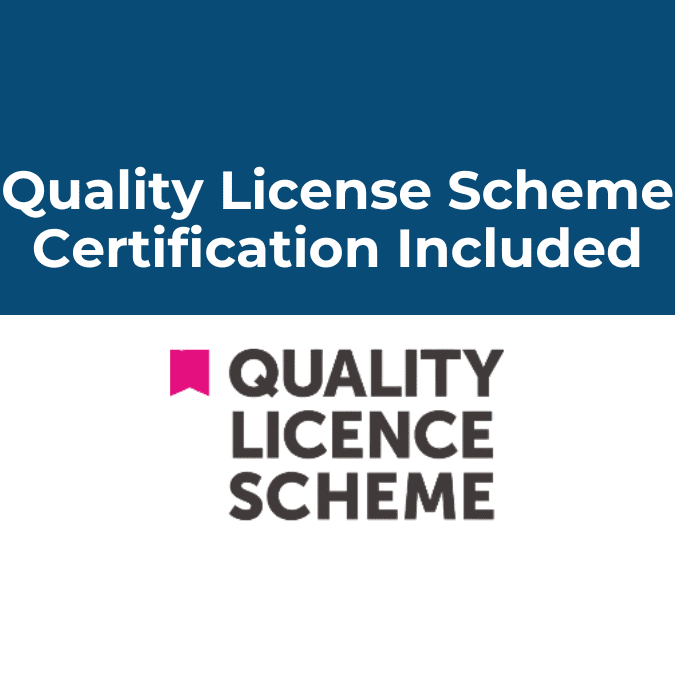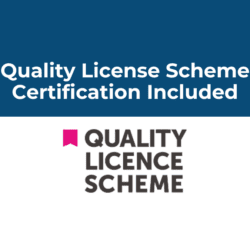Counselling Level 3 Course
£299.00
Working with people to work through mental problems is a very important career and requires a unique approach to problem solving and people skills. This Counselling Level 3 course is designed to help students to learn the knowledge of this type of career and begin to work with people to help them overcome psychological issues.

Description
About this course
This Counselling Level 3 course is great for anyone looking to gain a knowledge of counselling techniques, dealing with clients, building relations and helping people to overcome their issues. With this course you will learn about the many different psychological methods used in counselling and how these can be utilised to help a variety of clients.
| Study Time: | 100 hours |
| Enrolment length: | 12 months |
| Course Format: | Online |
| Entry Requirements: | None Specific |
Upon completion of this course students receive a Quality Licence Scheme certificate and an OLC certificate. All certification fees are included in your course fees.
Certification
To gain this Counselling Level 3 course you will need to submit, and pass, all of the tutor marked assignments. There are six assignments in the course and no need to purchase any textbooks as we provide all of the lessons and materials required to learn the syllabus. All assignments are coursework based and are in an essay/question and answer style to test your knowledge of the topics covered in each of the course sections.
Course Content
This course assesses the following units:
Unit 1: Counselling overview
Counselling involves many specific skills and takes place in an environment of trust and confidentiality, it has specific boundaries and counsellors aim to be empathetic when delivering sessions.
This unit covers:
- Personal attributes of a counsellor
- Directed advice and counselling
- The need for counselling
- Counselling development
Unit 2: The theory of counselling
Throughout this unit we will cover the structure of counselling and look at different methods of counselling which can be utilised. We will also cover various communication methods such as verbal, gestures and questioning methods which can be used in counseling sessions with a variety of clients.
This unit covers:
- Stages of counselling
- Theoretical approaches
- Main counselling skills
- Verbal communication
- Summarising
- Questioning
- Goal setting
- The end of the counselling relationship
Unit 3: Relationships in counselling
This unit of the course will cover confidentiality needs of counsellors as well as data storage and when information must be passed on to specific authorities. We will also look at build relationships with clients and develop our own skills to ensure you can provide the best possible service to those that you work with.
This unit covers:
- Client confidentiality
- Relations with clients
- Transference
- Contracts and data storage
- Crisis situations
Unit 4: Psychodynamic approaches to counselling
In this unit we will look at how people like Sigmund Freud and Carl Jung contributed to this area of counselling and discuss the theories that they came up with. We will also take a look at object relations theory and discuss the limitations of psychodynamic counselling.
This unit covers:
- Sigmund Freud
- Alfred Adler
- Carl Jung
- Jungian archetypes and dreams
- Object relations theory
- Psychodynamic therapy
- Limitations of the approach
Unit 5: Correcting behaviour through counselling
In this chapter of the course we will cover behavioural approaches to counselling and how learned behaviour can affect a person’s actions. We will look at the ABC model as well as how cognitive behavioural therapy is utilised by counsellors to influence a person’s behaviour.
This unit covers:
- Theories of behaviour
- Social learning theory
- Learnt behaviour
- The ABC Model
- Cognitive Behavioural Therapy
- Advantages and disadvantages of CBT
- Skills to be used practically
- Discussion about the cognitive approach
Unit 6: Humanistic counselling
Person-centred counselling forms part of what has become known as the ‘humanist’ approach in therapy, which places emphasis on seeing people as individuals who have free will. Humanistic ideas emphasise the present rather than the past and also the idea that everyone can be motivated to achieve their full potential in life.
This unit covers:
- Carl Rogers
- Active listening
- Maslows hierarchy of needs
- The existential approach
- Case study 1- Rob’s alcohol addiction
- Case study 2- Sarah’s anxiety
- Discussions about person-centred approaches
Online study and instant enrolment
All of our students are given access to our Online Campus through their own personal login and password. As soon as you complete your enrolment, you would have immediate access to your account which allows you to make a start working through the lessons. Tackle your assignments as your own pace and contact your tutor to access any help and support you need. The course itself is set out in a very simple layout, making it easy to work through the topics and complete your assessments.
Our Online Campus includes:
- Instant enrolment – access everything on your course from the moment you enrol.
- Personal account logins – login any time, 24/7.
- Full support throughout – message your tutor, use our online chat or give us a call.
- Online assignment submissions – upload work online from the comfort of home.
- Self-led learning – study at your own pace so you can pass much faster.
- Safe e-portfolio system – store all of your work in your account.
- Progression tracking – easily see what assignments you have left to complete.
- Details help centre – get instructions and guidance every step of the way.
- Unlimited attempts – submit as many attempts at your assignments as you need.
Unlimited assessment submissions
All of the assessments for this course are completed through our Online Campus. You can attempt each one as many times as needed to ensure you pass. After every attempt, your tutor will provide detailed feedback and tips on how you can improve going forward. Quickly see your progress during your studies by checking your progress bar and seeing the remaining assessments you need to complete.
Get full tutor support
Throughout your enrolment with the Online Learning College, you can access support at any time you need. All students are assigned a personal tutor who will mark all of your work and provide detailed feedback after every submission. Your tutor will be an industry expert with a full knowledge of the course content and will be able to help you at any point along your learning journey. One of the best tools at your disposal is your tutor – you can ask as many questions of them as you wish to and they will be happy to help at any time.
We also have a brilliant support team on hand and available through email, online chat and over the phone. This team is there to help with any questions which are more generic, such as providing support in submitting work through your account or getting your certificate when you have completed your course. We pride ourselves on ensuring the support you receive is the best in the business – help and guidance is fast and detailed every time you contact a member of the team.
Assessments
To pass this course learners must complete a number of assignments. These are completed after navigating through the lessons which are sent to students and writing your answers to assignment questions. Once these have been read and marked by your personal tutor, feedback and marks are provided to students which contain helpful tips to improve work in future assignments.
Enrolment Length
All of our courses are allocated plenty of time for students to complete their studies and all materials are self-led so that you can complete the course at your own pace, but you have access to the course on the Campus for 12 months from your enrollment date. Should you require additional time on one of our courses you can extend your enrolment by 30 days for an additional fee of £60. As well as this we operate a 14 day money back guarantee on every one of our qualifications- that’s how confident we are of how you will love studying with us!
Additional information
| Choose your payment option | Pay in full, 5 Monthly Payments, 10 Monthly Payments |
|---|













